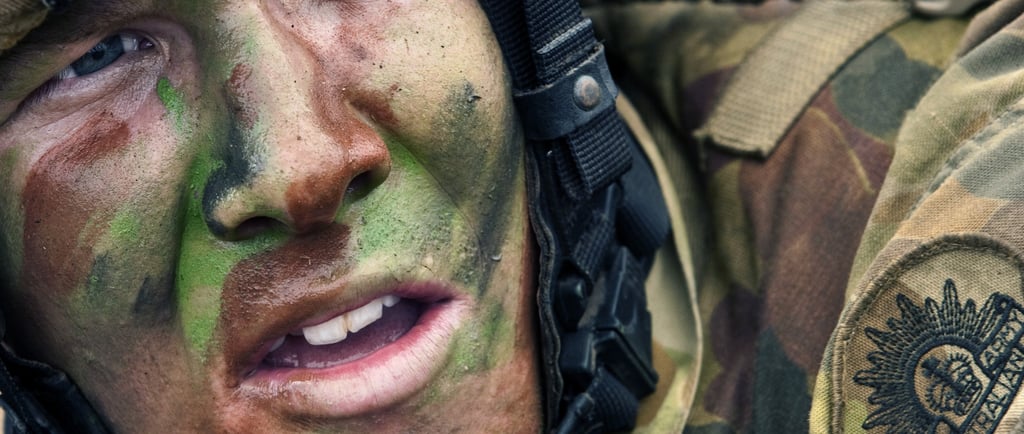Deafening Silence
RHAPSODIES
S.C.. Farrow
9/4/20213 min read


I don’t think I need to tell you how much I love my job. Wait, not my job, my work. I love my work. Don’t get me wrong, I have a job that I enjoy very much. I appreciate that I am very lucky to have a job that I like, and which is totally related to my work. But they’re not the same thing.
I have a job at a university. I teach creative writing to students who are either looking to improve their writing skills in order to enter or re-enter the workforce, or who are hoping to break into the writing and publishing industry. I truly enjoy working with my students. I love sharing the knowledge I’ve gained throughout my twenty-year long career in order to help them achieve their goals. And I am genuinely filled with pride when I see them making progress.
"You know you're a writer when not writing is as torturous as writing."
However, I won’t lie to you. I have a job because it’s a reasonably steady pay cheque (only reasonably steady because I’m a sessional teacher), and as we all know, if you work in any arts related field it’s almost impossible to make a living from your art alone. My work, on the other hand, is what I LOVE.
Like most artists, I am compelled to create. Despite the trials, errors, risks (emotional, financial, and reputational), failures, and successes, the desire to create is more than just a desire. It’s a compulsion.
In my entire life, I have never been any different.
DEAFENING SILENCE
So, now that This is Not a Lie is out there in the marketplace, it’s time to move on to my next project.
If you know me, you know that I don’t write narratives for their marketing value or their potential to sell. Instead, and possibly to my detriment, I write about things that have, or have had, some kind of emotional impact on me.
Several years ago, I was walking through my local shopping complex, in a hurry, as usual, when a glowing advertisement on one of those free-standing, monolithic-type digital signs placed just inside the entrance caught my eye. The text on the screen listed the number of Australian soldiers who had died by suicide since returning from the conflict in Afghanistan.
I stopped in my tracks and stared at it because the number was staggeringly high. Time slowed and I became aware of the dozens of people walking past me. I also became aware of the fact that I was the only one who had stopped to read it. No one else gave it a second glance. I reasoned this was because they were busy, they had other things on their mind, and perhaps they had simply become blind to the overwhelming amount of advertising that pervaded their everyday lives.
However, I was deeply saddened when I read how many of our ‘diggers’ had taken their own lives—a number greater than the total number of soldiers who were killed in the actual conflict.
I knew little of war, soldiers, or veterans. War and its repercussions weren’t things that I, or anyone in my immediate family, had experienced. Neither was I a fan of war stories or war movies, even though I’d seen some great war movies. The only thing I knew about war or returned soldiers was that my ex-father-in-law, young and overly keen, signed up at seventeen to go and fight with the allies in World War II. I remember the photo of him sitting on the body of a dead German soldier as he chowed down on a handful of Australian Army rations during a lull in the fighting.
My father-in-law rarely spoke of his time overseas fighting German troops in places like Syria and Lebanon. However, I’ll never forget the words of my ex-mother-in-law, spoken in quiet conversation, when she told me that the war had changed him, that he wasn’t the man he was before he left Australia. I knew she was talking about ‘shell shock’ but she wouldn’t elaborate.
Even well into his old age, my father-in-law rarely slept, or rarely slept well. He smoked like a chimney and sudden loud noises made him jump. Physically, he came home in one piece, but mentally… Well, the quality of his mental health was the subject of many a family conversation. He never spoke of what he did or what he saw when he was away fighting. However, it was clear that he internalised his experiences and that they weighed heavily on him until the day he died.
PTSD RESEARCH
I was so moved by what I read on that electronic board in the shopping complex that I felt compelled to write about an Australian veteran who was experiencing PTSD.
In the years since reading that information, I’ve continued researching and learning more about our veterans. Those experiencing PTSD continue to struggle with getting the help they need, and now allegations of war crimes committed by Australian soldiers have come to light and are being investigated by various branches of the government.
It’s a fascinating time to be working on this story.
Creative writing
Novel
Research
PTSD
© 2024. All rights reserved
In the spirit of reconciliation, we acknowledge the Traditional Custodians of Country throughout Australia and the Torres Straight Islands and their connections to land, sea, and community. We pay our respects to elders past and present and extend that respect to all First Nations and Torres Strait Islander peoples today.
ABN: 19 569 432 238





